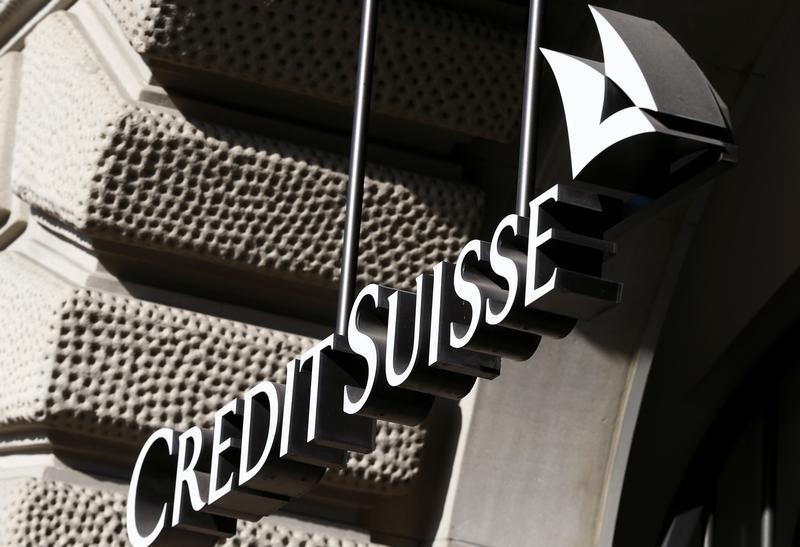ZURICH, April 30 — Credit Suisse announced today that one of its board members would step aside after shareholders called for his head following major losses linked to the collapses of the Archegos and Greensill financial firms.
The Swiss bank said in a brief statement that Andreas Gottschling, the head of the board’s risk committee, would not seek re-election at a general assembly later today.
Credit Suisse has been hit hard by bankruptcies at Archegos, a US hedge fund, and British financial firm Greensill.
Shockwaves rippled through global financial markets and institutions last month when then little-known Archegos sold at least US$20 billion (RM82.1 billion) in stocks as it sought to cover obligations to its lenders.
Losses at leading global banks have jumped past US$10 billion, with Credit Suisse accounting for around half of the damage.
Credit Suisse had also invested heavily in Greensill, a firm specialised in short-term corporate loans via a complex and opaque business model, and was forced to suspend four funds after the firm declared insolvency last month.
The massive losses could take a heavy toll on Credit Suisse’s reputation, which was just beginning to mend after a massive scandal over espionage against former employees pushed former chief Tidjane Thiam to resign early last year.
‘Complex risks’
In a bid to mend the damage, Credit Suisse’s investment banking chief Brian Chin and its head of risk compliance Lara Warner were pushed out earlier this month.
One of Switzerland’s top shareholders associations, Actares, had opposed Gottschling’s re-election to the risk committee.
Actares called on Credit Suisse to change its corporate strategy and culture in the wake of the financial fiascos.
“The example of the Greensill case shows that Credit Suisse apparently hasn’t learned to manage complex risks for such an important client,” it said in a statement earlier this month.
The US firm Glass Lewis, which advises investors, had also urged Credit Suisse shareholders to vote against Gottschling’s re-election, saying a change would help restore investor confidence.
Friday’s general assembly will also mark the arrival of Antonio Horta-Osorio, the former chief of British bank Lloyds, as Credit Suisse’s new chairman.
He is replacing Urs Rohner, whose decade-long tenure has been marked by several large crises, including the recent spying scandal and multi-billion-dollar settlements with US authorities over the bank’s role in the US subprime debacle and for helping US citizens avoid US taxes.
Back when Rohner took over in 2011, shareholder group Ethos had warned that Credit Suisse’s commercial banking division was “too small to compete with the American banks” and should be sold rather than encouraged to continue taking risks.
But while Credit Suisse bosses clipped the unit’s wings, they did not get rid of it completely, and Rohner has taken heat for allowing the current debacle to unfold.
US$5.5 billion hit
The bank, which is losing US$5.5 billion to cover damage related to Archegos across the first and second quarters, plans to issue new shares to reinforce its capital base.
Swiss rival UBS was also hit, but not as badly as Credit Suisse, booking losses of US$774 million related to Archegos.
US family-owned hedge fund Archegos, run by former Tiger Asia director Bill Hwang, had taken huge bets on a few stocks with money borrowed from banks.
When several of those bets turned sour, the fund was unable to meet “margin calls”—when the banks demand extra cash or assets to cover losses in a brokerage account.
In an interview published by the NZZ daily today, UBS chief Ralph Hamers acknowledged that the industry “should not have accepted the lack of transparency” in the Archegos portfolio.
“There was a concentration of risk,” he said, pointing out that all the exposed parties reacted at the same time, causing “an extreme reaction in stock prices.”
Hamers insisted though that UBS worked hard to mitigate risks.
But “unfortunately incidents cannot be completely eliminated,” he said, urging more regulatory intervention to avoid an Archegos repeat.
Greensill’s Australian parent company, meanwhile, entered liquidation this month.
The company had filed for bankruptcy last month for its operations in Britain, as well as in Australia and in Germany where it has a banking arm.
Greensill’s implosion threatens about 50,000 jobs at companies that relied on its supply chain financing, including the steel empire of Indian-British billionaire Sanjeev Gupta. — AFP






















